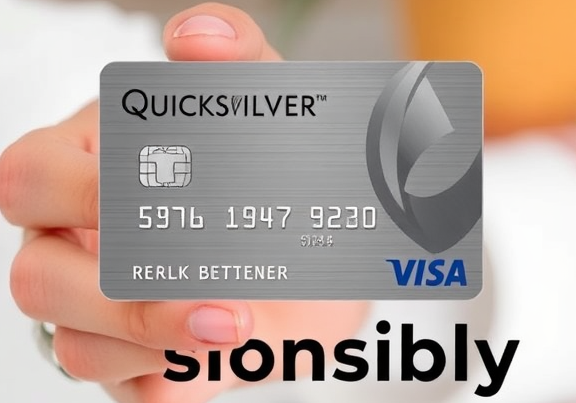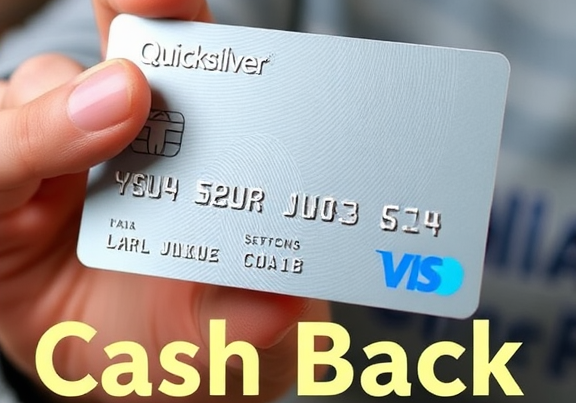Effective Strategies to Crack the Code for Chase Business Credit Card Approval
Are you considering applying for a Chase business credit card? Achieving approval can sometimes feel like cracking a code. However, understanding the right strategies can make this process much simpler. This guide will equip you with effective strategies to enhance your chances of getting approved for a Chase business credit card.
Understand the Types of Chase Business Credit Cards
Chase offers several business credit cards, each with distinct features tailored to various business needs. Familiarizing yourself with these options is crucial:
- Chase Ink Business Cash: Ideal for businesses that spend a lot on office supplies and internet services.
- Chase Ink Business Preferred: Great for earning higher rewards on travel and other business expenses.
- Chase Ink Business Unlimited: Offers a flat rewards rate on all purchases, making it straightforward for any business.
Select the card that aligns best with your business spending habits to maximize your chances of approval.
Check Your Credit Score
Your credit score is one of the most significant factors in determining your eligibility for a credit card. Chase typically prefers applicants with a score of 700 or above. Here’s how you can check and improve your score:
- Obtain a free credit report: Use services like AnnualCreditReport.com to review your credit history.
- Resolve discrepancies: If you find errors, contact the credit bureaus to fix them.
- Pay bills on time: This habit makes a substantial positive impact on your credit score.
By ensuring your credit report is in good shape, you increase your chances of approval.
Small Business? Big Opportunities with Chase! 💼💡
Take your business to the next level with exclusive tools and rewards tailored for small businesses. Simplify your finances, earn valuable perks, and grow faster.
Start Today with Chase Business
Prepare Your Business Financials
When applying for a business credit card, be ready to provide your business’s financial information. Chase may request details such as:
- Your business revenue and expenses
- Time in business
- Business structure (LLC, Corporation, etc.)
Having this information organized and ready can streamline the application process. Additionally, it shows Chase that you run a legitimate business, which enhances your credibility.
Limit Your Recent Credit Inquiries
Frequent credit inquiries can negatively impact your credit score. To improve your chances for approval:
- Space out applications: Aim to apply for credit only when necessary.
- Be mindful of hard inquiries: Each hard inquiry can lower your score slightly, so reduce the number of recent inquiries before applying.
A clean credit inquiry history signals responsible credit management to Chase.
Small Business? Big Opportunities with Chase! 💼💡
Take your business to the next level with exclusive tools and rewards tailored for small businesses. Simplify your finances, earn valuable perks, and grow faster.
Start Today with Chase Business
Provide Accurate Business Information
Filling out your application with accurate and consistent information is crucial. Discrepancies can raise red flags. Keep the following in mind:
- Make sure your business name matches tax documents.
- Use your business phone number and address that are listed with the IRS.
- Keep your business structure clear and consistent across applications.
Consistency in your information helps build trust with Chase.
Leverage Existing Relationships
If you already have a personal or business account with Chase, leverage that relationship. Here’s how:
- Contact your banker: Discuss your credit card application and inquire if there’s anything specific you can do to enhance your approval chances.
- Check your banking history: A solid banking history can greatly aid your application.
Existing relationships can positively influence your credit card approval outcome.
Small Business? Big Opportunities with Chase! 💼💡
Take your business to the next level with exclusive tools and rewards tailored for small businesses. Simplify your finances, earn valuable perks, and grow faster.
Start Today with Chase Business
Use Alternative Contact Methods
If you’re uncertain about your application status, consider reaching out to Chase through various channels. Sometimes a phone call, chat, or email can provide clarity on potential concerns or necessary documentation. Proactive communication can demonstrate your commitment to securing the card.
By following these strategies, you’ll improve your chances of cracking the code for Chase business credit card approval. Each step you take builds a stronger case for your application—enhancing your potential for success in securing the credit you need to grow your business. Good luck!
Understanding the Impact of Business Credit Scores on Credit Card Applications
When applying for a business credit card, your business credit score plays a crucial role. This score serves as a key indicator of your company’s creditworthiness, affecting not only your approval chances but also the terms offered. Understanding this score and its impact can significantly enhance your application’s success rate.
The business credit score is similar to your personal credit score. It reflects your business’s financial behavior, including payment histories, credit utilization, and overall debt levels. Major credit bureaus like Dun & Bradstreet, Experian, and Equifax generate these scores, and lenders use them to assess risk. A higher score usually indicates a lower risk of default, making you a more attractive candidate for business credit cards.
Components that Affect Your Business Credit Score
Your business credit score comprises several elements that contribute to the overall assessment:
Small Business? Big Opportunities with Chase! 💼💡
Take your business to the next level with exclusive tools and rewards tailored for small businesses. Simplify your finances, earn valuable perks, and grow faster.
Start Today with Chase Business
- Payment History: This factor accounts for how well your business pays its bills. Timely payments can boost your score, while late payments can hurt it.
- Credit Utilization Ratio: This is the ratio of current credit usage compared to total available credit. Keeping this ratio low is essential for a healthy score.
- Length of Credit History: A longer credit history can positively impact your score, as it provides more data on your financial behavior.
- Public Records: Bankruptcies, liens, or other adverse public records can severely damage your score and deter lenders.
- Number of Accounts: Having a mix of different credit accounts, such as loans and credit cards, can demonstrate responsible credit behavior.
How Your Business Credit Score Influences Approval
Your business credit score directly influences the outcome of your credit card application in several ways:
- Approval Odds: A higher score generally enhances your chances of approval. Lenders often set a minimum score requirement, and falling below this threshold may result in denial.
- Credit Limit: If approved, your score will also determine the credit limit you receive. A strong score might lead to higher limits, providing your business with more financial flexibility.
- Interest Rates: Your score can influence the interest rates on the credit card. A strong business credit score may qualify you for lower rates.
- Rewards and Perks: Lenders may offer better rewards, cashback options, or other perks to businesses with good credit scores. This can provide additional benefits for your company’s spending.
Improving Your Business Credit Score
If you find your business credit score lacking, don’t worry—there are steps you can take to improve it:
- Pay Bills on Time: Establish reminders for upcoming payments and automate them whenever possible. Timely payments are vital for boosting your score.
- Manage Credit Utilization: Aim to use no more than 30% of your available credit. If necessary, consider requesting a credit limit increase to improve your utilization ratio.
- Monitor Your Credit Reports: Regularly check your business credit reports for errors or inaccuracies. Dispute any issues you find with the credit bureaus.
- Establish Credit Accounts: Create accounts with suppliers and vendors that report to credit bureaus. Building a diverse credit profile will positively impact your score over time.
- Limit New Applications: Each time you apply for credit, a hard inquiry is made, which can temporarily lower your score. Be strategic and limit applications to those you are likely to secure.
By understanding the mechanics of business credit scores, you can position your business for future success. This knowledge not only aids in securing credit cards but also fosters better financial management practices. As you build or improve your credit score, keep in mind that patience and consistent effort yield the best results.
Whether you are starting a new venture or looking to grow an existing business, a solid business credit score is essential. It can open doors to numerous financial opportunities and help you establish a strong credit profile. Aim to be proactive about your credit, and make informed decisions to enhance your likelihood of approval for business credit cards.
Conclusion
Successfully obtaining a Chase Business Credit Card requires a strategic approach that combines understanding the approval process with knowledge of your business credit score. By implementing effective strategies, such as reviewing your credit history, ensuring your business structure is appropriate, and maintaining strong financial habits, you can significantly enhance your chances of approval.
Small Business? Big Opportunities with Chase! 💼💡
Take your business to the next level with exclusive tools and rewards tailored for small businesses. Simplify your finances, earn valuable perks, and grow faster.
Start Today with Chase Business
Your business credit score plays a crucial role in the decision-making process for credit applications. Lenders like Chase consider various factors, including payment histories, outstanding debts, and length of credit history. Regularly monitoring and improving your score can set you apart from other applicants. This means paying your bills on time, reducing your debt, and avoiding unnecessary credit inquiries.
Moreover, gathering necessary documentation, such as financial statements and tax returns, can showcase your business’s financial health to lenders. A well-prepared application that reflects your commitment to responsible financial management signals to Chase that you are a viable candidate for their business credit card.
Developing a clear business strategy and efficiently presenting your business’s strengths can further enhance your application. Remember, being thorough and transparent throughout your application process reflects well on your business reliability.
Ultimately, understanding these dynamics will help you navigate the complexities of getting approved for a Chase Business Credit Card. By focusing on strengthening your business credit score, presenting a solid application, and following effective strategies, you’re on the right path to cracking the code for successful credit card approval.
Small Business? Big Opportunities with Chase! 💼💡
Take your business to the next level with exclusive tools and rewards tailored for small businesses. Simplify your finances, earn valuable perks, and grow faster.
Start Today with Chase Business



